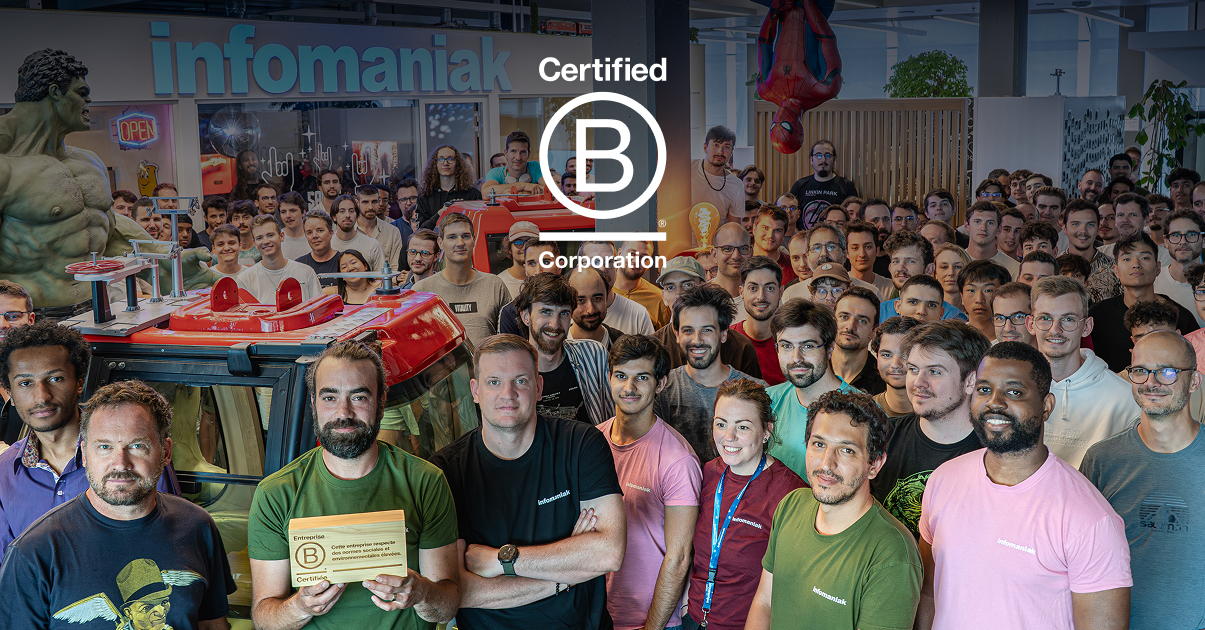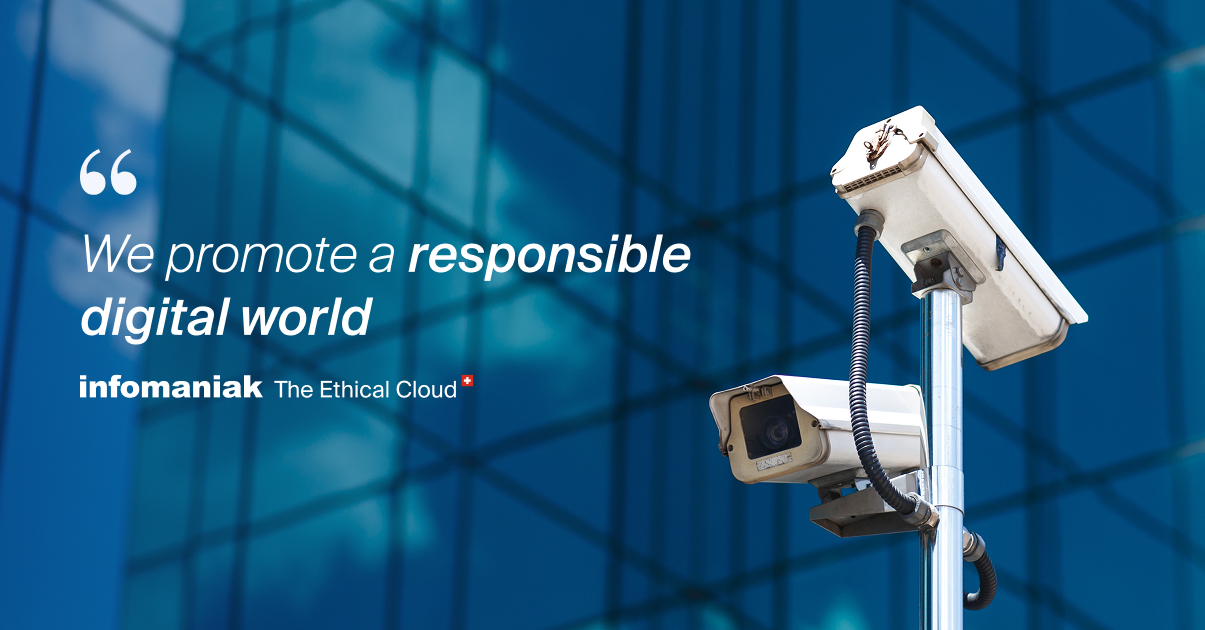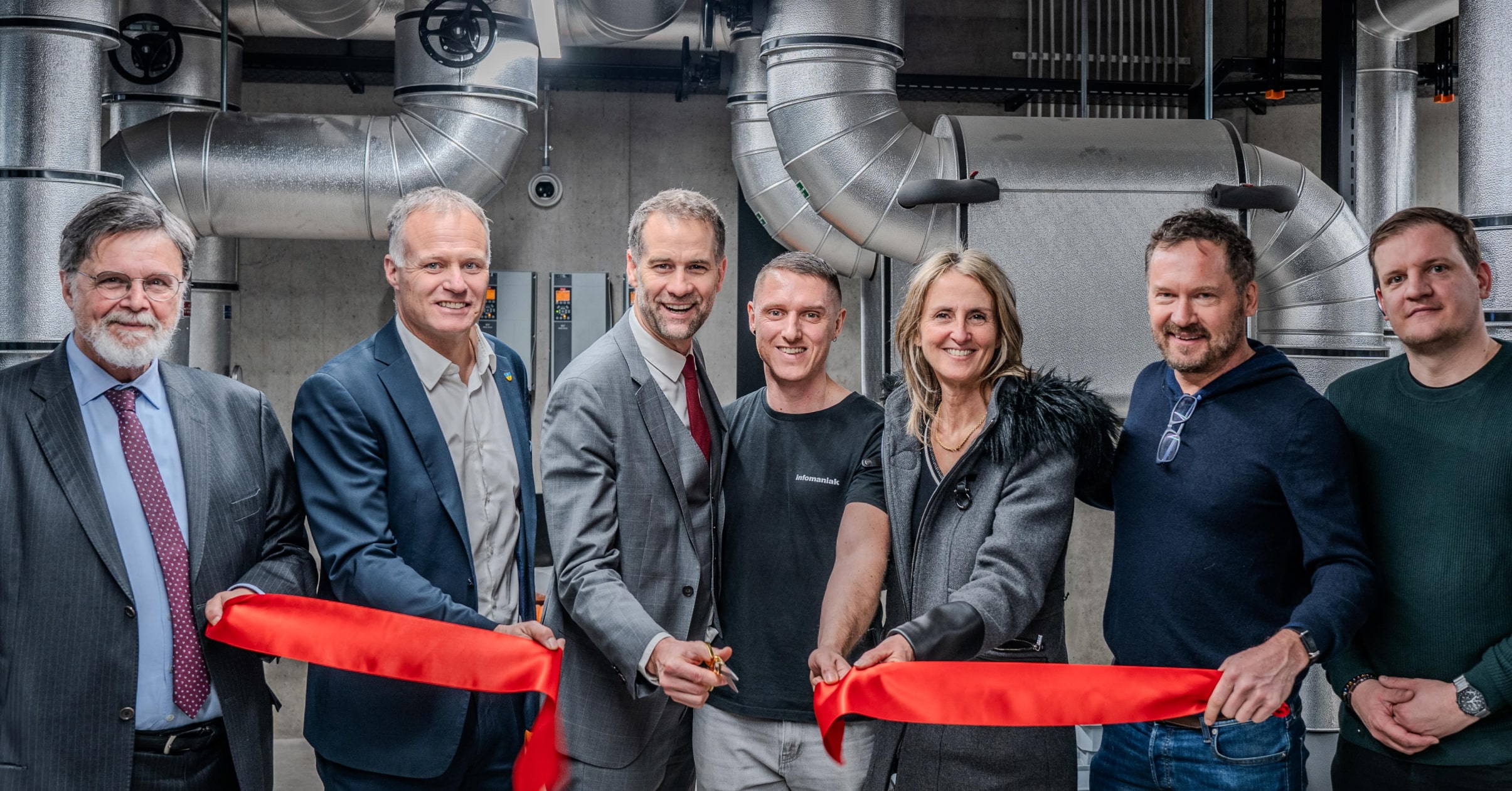The ambitious project of Swan Blanc, AI developer at Infomaniak: to compete at the 2024 Olympic Games in Paris. A specialist in artificial intelligence and a young marathon runner, our developer has decided to set the bar as high as possible. He happily compares his challenge to Infomaniak’s aim of remaining independent from the tech giants. To challenge those at the top, you need to be bold and tenacious, with a healthy dose of folly. Swan Blanc will not be pursuing this project alone, as we have undertaken to provide him with the best possible conditions to make his dream come true. This partnership has given rise to NS Team Infomaniak, a team sharing the same values and methods. This article refers back to the discussion we recorded with Swan Blanc. It is also the very first Infomaniak podcast.
How did you have the idea of participating in the 2024 Olympics in Paris?
The idea didn’t just pop into my head. I would occasionally go running. I also did sporting activities such as badminton and climbing. But it was while I was studying in Paris that I thought about running a marathon.
My mother is a former high-level multi-disciplinary athlete (international races, in particular the European triathlon championship), and I asked her if she could train me. She told me that I had never been interested in running. But what can I say, I was keen to run the Paris marathon. That resonated with my mother’s career, which inspired me. In 2018, I ran the 42.195 km of the marathon, and it was great. It’s a legendary race that produces so many thrills. So I decided to go one step further. Further, OK, but how far? If I was going to push back the boundaries, I thought I might as well set the bar as high as possible. So, why not the Olympics?
I will do everything I can to qualify and participate in the Olympics by trying to become a better version of myself.
Simply competing in the race means the pursuit of excellence, because there are so many high-level competitors. The category is usually dominated by African athletes from Kenya, Ethiopia and Uganda.
So what will it really take to make your dream come true?
First, you need to be a member of a club and to have a licence. Second, you need to run an accredited marathon in under 2 hours 12 minutes. The French federation certifies races, as does the international federation. In practice, the number of places for the French Olympic team is limited. Only the top 4 will qualify.
There is a large Infomaniak logo on your vest. How did you hear about Infomaniak? What are you working on?
Every year, the University of Savoie Mont-Blanc organises a forum with companies, and Infomaniak was present. After meeting them, I joined Infomaniak to carry out my Master 1 work placement in IT. Then I completed a work/study placement (2 weeks at the university, 2 weeks with Infomaniak), in my specialist field of artificial intelligence. I immediately saw how open Infomaniak was to new disciplines such as AI, which I suggested introducing into the company. I was hired after completing my studies and pursued my sporting project at the same time.
Why choose Infomaniak as your main partner?
I went to see the Infomaniak management team and laid out my project. They weren’t expecting that. I asked if I could work part-time so that I could pursue my preparation as well. They accepted the proposal and Infomaniak has become the main sponsor for this adventure.
What costs most is the time and the equipment. Infomaniak helps me have access to both.
My project and that of Infomaniak share a point in common. The cloud market is dominated by the tech giants, who are stifling the market.
What I like about Infomaniak is that they want to provide an independent alternative. A lot of people might say it’s impossible, that it’s a lost cause, but they continue moving forward, proposing solutions and taking action, and it works. They are movers and shakers. Like Infomaniak, I work with resources and a local team. I am hoping to compete in the most emblematic of all sporting events and will be facing the world’s best athletes.
I knew that if I wanted to succeed in this sporting endeavour, it was now or never. So I created a team, without whom it would be impossible to succeed. In all elite competitions, you need a team of people around you. The NS Team Infomaniak consists of:
- Nathalie, my mother
- my cousin (physical preparation)
- Quentin, my physio
- Virginie, my sophrology therapist (for mental preparation)
- Infomaniak (main partner)
- myself
How do you manage the balance between your work as a developer and your training?
I need to be highly organised, and there are certain sacrifices to be made. I don’t see my friends as much, so that I can stay in a “health bubble” and isolate myself.
At the start, that wasn’t quite so easy, but now I manage. To prepare for the 2024 Olympics, I’m constantly living outside my comfort zone.
This level of commitment goes far beyond any professional difficulties. It’s another world. Thanks to that, I’m not afraid of anything at work.
I know that I’ll always get the job done, even when the pressure is on, because it will never be as extreme as sport.
What does a typical week look like?
I work at Infomaniak on Monday, Tuesday and Wednesday morning. I do 20 hours a week.
The rest of the time is given over to preparation. Here’s an example:
- Monday, I go jogging and go to work by bike.
- Tuesday, intensity session (split into 30-second bursts)
- Wednesday, I train at the stadium in Aix-les-bains (intensive session)
- Thursday is for physiotherapy and sophro-therapy
- On Friday, there are 2 varying training sessions
- Saturday is gym work and jogging
- Sunday is the hardest session of the week
But that’s just an example. The volume varies from one week to another.
What have you learned from this experience?
I have learned lots of lessons from running. There are also numerous similarities with the way we work at Infomaniak.
One trap to avoid is prioritising quantity over quality
Many marathon runners focus on quantity rather than quality. They do too much because they’re afraid not to do enough.
The problem with that is that you can pick up an injury or become mentally fatigued. It’s similar to the situation with work and overtime. Your preparation needs to focus on quality.
Some people prepare by running 150 or even 200 km per week. I’m nowhere near that. I do no more than 110 or 120, and that includes my cross-country skiing. When I do a track session, I know exactly what I want to work on. For example, it may be on sustaining a certain speed (quick, slow, race) or vVO2 max (velocity at maximal oxygen uptake) in order to maintain or push back this limit, etc.
What is important is to know what the ideal workload is for you!
Developing your optimisation approach
There is one aspect of managing the project that reflects the corporate world. It is the same as development sprints at Infomaniak – you plan and organise your training by means of tasks to be completed. You have to set a goal for a session, a plan or a week and see how this fits in with the ultimate goal.
It is in the constraints that we find the best possibilities.
This qualitative rather than quantitative approach is all the more important as I began running relatively late in my life. So I’m looking for techniques that will help me improve quickly without injuring myself or taking unnecessary risks. As in all ambitious projects, resources are limited. We intend to identify strategies to optimise my preparation and make the project a success.
It’s a team project, and the environment is key
It’s important to understand that behind every solo runner, there is an entire team. I don’t do it all alone. The environment (the team) and the confidence that results from that is essential. That is something else we have in common with the values of Infomaniak, where team spirit is encouraged. It is a multiplier effect.
What were your sporting achievements before you began preparing for the Paris Olympics?
- I finished 2nd in the Geneva 10 km race 1st in the Annecy 5 km race.
- I finished 28th out of 40,000 in the 2022 Paris half-marathon in 1 hour 9 minutes.
- 11th scratch runner and 3rd French runner in the 2022 Annecy marathon in 2 hours 31 minutes.
My times keep dropping as I continue my preparation.
You asked your mum to train you. What experience does she have?
She did road races, cross country and semi-marathons. She injured her knee doing high-level triathlon and team triathlon races. So she tried her hand at a different discipline: ski-mountaineering.
You climb mountains with skis and pelts then ski down. She has competed in several international races in this sport. So she is a very determined, all-round sportswoman.
What does this challenge mean to you?
For me, this challenge means being a better version of myself.
It is a huge pleasure that I want to share with my colleagues and it’s very satisfying to work on a project with others (in a team). It is really something we do together, I can’t stress that enough.
What could you say to someone looking to take up such an ambitious project?
At the beginning, lots of people would say to me, “It’s a nice idea, but you’ve started too late, you know…”
Roberta (Bobbi) Gibb was the first woman to run an official marathon. She had to take part incognito, as women were prohibited from running in those days. It was claimed that marathons were simply too far for women to run. She was disqualified by the race administrators. Having shown that a women could run a marathon, she campaigned for women to be accepted. She inspired other women to challenge the established rules. Like Katherine Schwitzer, who managed to register for the Boston marathon using only her initials. She was the first woman to complete a marathon with an official bib (1975). She was disqualified and suspended.
My advice: don’t listen to those who preach. Sometimes, we put up our own invisible barriers. These are what we call limiting beliefs. And they are the hardest to dismantle.
And what if you don’t succeed?
History is full of failed attempts. That is my second piece of advice: welcome failure!
I have to admit that I wasn’t the perfect pupil. I set out to do a professional baccalaureate as an electrician. But in the end, I went to university and now I work in artificial intelligence. What we see as a failure at one point in time can become a long-term goal.
Everyone supporting Swan Blanc
Infomaniak and all its employees are supporting NS Team Infomaniak and we will be sure to keep you updated with regard to the major milestones all along Swan Blanc’s road to his Olympic dream.
You can follow Swan Blanc via his social media accounts and subscribe to his newsletter via his website nsteam.run
More
Infomaniak inaugurates a revolutionary data center that recovers 100% of its energy to heat buildings
Tuesday January 28th, 2025

 Français
Français Deutsch
Deutsch Italiano
Italiano Español
Español




